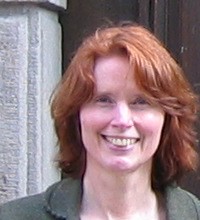Wednesday, March 4, 2015
3.4 Cooking = more writing for the process narrative
Grades for literacy narrative: Each of you should have recieved an email with the scoring for your literacy narrative. If you have missing documents and you want to receive full credit for your work - all revised/make up work for the literacy narrative is due by 3.11 = next week. No work for the literacy narrative will be accepted after that time.
Also - I added up the points wrong (gave scores out of 100 points when it should have been out of 125). I don't think this error will change anyone's letter grade, and I will give you corrected scores with the next unit.
Cooking!
Cooking is the where we get the energy for our ideas - the "OH! I want to write this. . .! " feeling that propels us forward and takes us deeper into our understanding of our material as well as our facility in putting that material into words.
Elbow said that when he started thinking about cooking, he understood it to be simply writing freely = freewriting. As he pursued this idea he realized that it is not JUST the open access to ideas such as freewriting allows - but the "interaction between contrasting or conflicting material." See the top of p. 49 for a more detaileddiscussion. We started with reviewing your ideas + freewriting to set you up for the cooking exercises.
1. Read through the writing you have done so far for the process narrative. This includes all of the writing you have done to document your writing process for the literacy narrative, plus the writing you did for homework last week to document any other process which you might want to focus on for the process narrrative. I also invited you to note or add any other information you thought would be important to include for the process narrative.
2. Freewriting. The next step in our overview of the cooking process was to do a freewrite.
3. After freewriting, you did some "looping": noting patterns/repetitions in the freewrite and then doing a second freewrite to develop those ideas. Some patterns you might look for include: associations to feelings (which parts were positive/which parts were negative? what are the connections between these feelings and the content?); repetitions of words or ideas; overall themes.
Looping is one way to move from the immersion of freewriting - into the particularity+ self-consciousness of analysis and then back to immersion (in the next freewrite). As Elbow points out the contrast/conflict between these ways of thinking can help generate the energy/ideas that can move you forward in your writing.
4. Our next move was to write a list of metaphors for your writing process. Then step back and look at the features of the metaphors you chose. What does each metaphor say about your writing process? Do the metaphors present a common theme about your process? The idea here is that a metaphors pose features which you might not have named by themselves, but which you will see as present in the metaphor.
5. Finally - we crossed modes by desribing your writing process as an image, a song, a dance or some other "non-languaged" system for representation.
After we finished "cooking"using a range of Elbow's approaches, you talked in groups to pull together the ideas you gained through the various processes we worked through. The protocol for these conversations is as follows.
1. Characterize/discuss your writing process in terms of the different prompots we worked through for cooking: Freewriting, looping (moving between words + ideas, immersion and stepping back); listing-analyzing metaphors; moving among modes.
2. Describe what you think you might use as a focus for your proces narrative in light of these cooking exercises.
3. Discuss what additional observations you might need to gather/use to develop this focus for your essay.
4. Discuss which exercises worked best for you.
For next class:
Read: Ann Wysoki and Dennis Lynch: "A Rhetorical Process for Designing Compositions"
Write: Post today's class writing to your process page as "cooking" and develop any additional observations you will need to write the process essay with the focus you have decided on.
Subscribe to:
Post Comments (Atom)

No comments:
Post a Comment